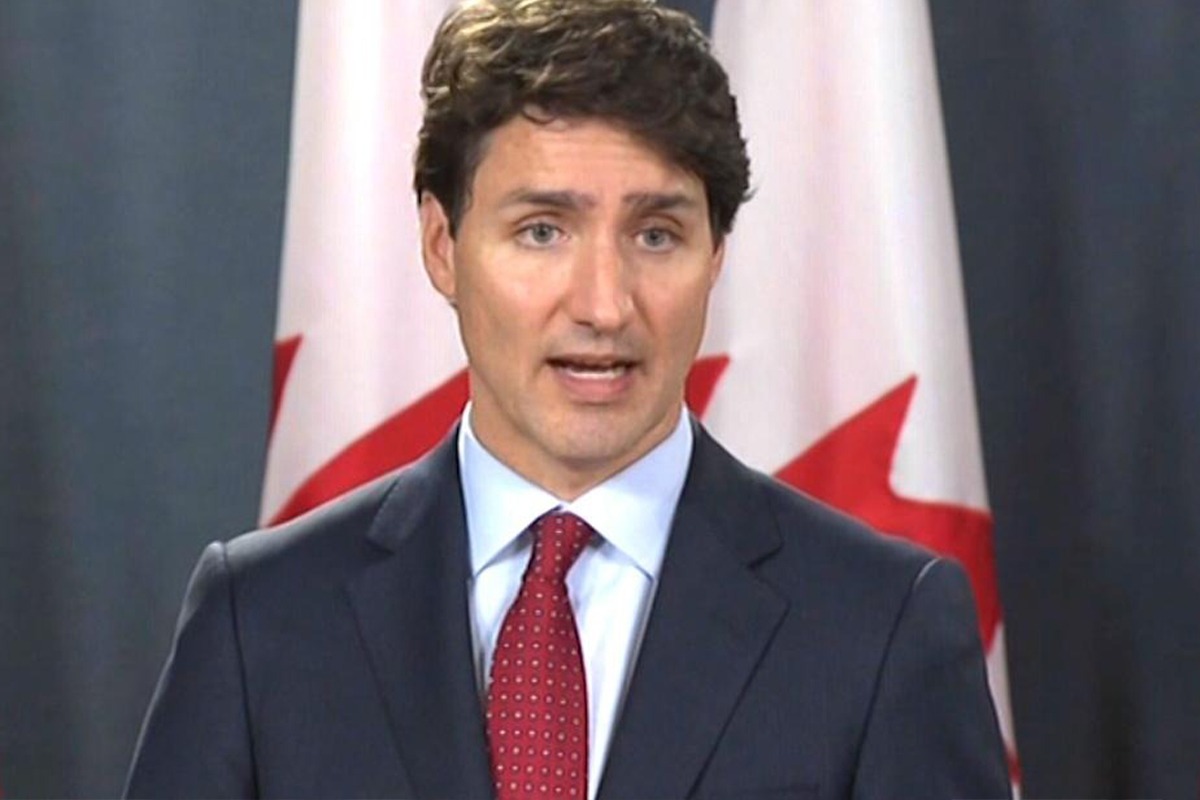
Canada has harbored and shielded India’s designated terrorists, which raises questions about its commitment to international counter-terrorism efforts.

Canadian Prime Minister Justin Trudeau has plunged India-Canada relations into disarray with his baseless allegations about the killing of Khalistani terrorist Hardeep Singh Nijjar. While New Delhi has rightly rejected these accusations as absurd and motivated, it’s important that the international community scrutinizes Trudeau’s actions in this escalating diplomatic dispute.
Hardeep Singh Nijjar, the man at the center of this controversy, was not an innocent victim. He was the chief of the Khalistan Tiger Force (KTF), a terrorist organization designated by India’s Ministry of Home Affairs. The KTF aimed to revive terrorism in Punjab and posed a significant threat to India’s territorial integrity and national security. Nijjar’s activities included networking, training, and financing of KTF members, making him a key figure in a dangerous terrorist outfit.
It has been nearly three months since Nijjar’s killing, yet the Canadian government has failed to provide concrete proof implicating India. If Trudeau was indeed certain about India’s involvement, one would expect swift action against the alleged culprits. The absence of such actions raises doubts about the credibility of his claims.
Moreover, it is essential to ask why suspicion hasn’t fallen on Pakistan’s notorious spy agency, ISI, in the killing of Hardeep Singh Nijjar. The ISI has a history of sowing discord between Hindus and Sikhs, and its involvement in this case cannot be ruled out, especially given Canada’s role in providing a platform for anti-India activities.
READ MORE: EXC: Trudeau’s party gets funds from Khalistani drug cartels: Congress MP
The influence of Pakistan’s ISI on Trudeau and his growing sympathies towards Khalistanis is visible from the deteriorating India-Canada ties under his rule. Trudeau’s 2018 visit to India was marred by controversy when his delegation met Jaspal Atwal, a Khalistani convicted of attempted murder. Subsequent incidents such as the vandalization of a Hindu temple in Canada with anti-India slogans and local referendums on Khalistani independence backed by Pakistan have deeply strained the bilateral relations between India and Canada his watch.
In a shocking turn of events, the Trudeau government permitted parade celebrations in Canada commemorating the assassination of India’s late Prime Minister Indira Gandhi by pro-Khalistan extremists. This act, along with allowing Khalistani radicals to target Indian diplomats in posters at public places in Canada, underscores Trudeau’s willingness to pander to this extremist group.
The Trudeau administration’s bias against both Indira Gandhi (Congress) and Narendra Modi (BJP) is an indicator that he is fundamentally, more concerned about his Khalistani constituency at home rather than Canada’s bilateral relationship with India. His actions and statements have encouraged the Pakistan ISI-Khalistan nexus, which operates against India’s former and current leaders. This alignment with forces inimical to India’s interests raises serious questions about Trudeau’s foreign policy.
READ MORE: Khalistani gangster killed in Canada faces 18 cases in Punjab
But even otherwise, Canada’s track record of protecting its citizens, including immigrant criminals and terrorists, is strange. The nation has harbored and shielded India’s designated terrorists, even those involved in the Kanishka bombing. This raises questions about Canada’s commitment to international counter-terrorism efforts.
In effect, as tensions escalate between India and Canada, it is crucial that the West looks deep within to see how it has repeatedly failed to respect the security concerns of sovereign democracies like India. Trudeau’s baseless allegations and his administration’s sympathetic stance toward Khalistanis have strained relations between the two nations. India has every right to defend its citizens and interests, and it’s high time that Trudeau recognizes the gravity of his actions and their implications for the bilateral relationship. Diplomacy should be based on evidence and mutual respect, not unfounded accusations and political posturing.
Furthermore, the United States’ mere expression of “concern” regarding the allegations does not help India-US relations either, especially considering their strong strategic partnership. It appears that Trudeau’s unsubstantiated claims are given unwarranted leniency by the U.S. State Department, which is completely unacceptable to India, striving to maintain a strong relationship with its allies.
The entire international community, especially in the democratic world must seek evidence from the current Canadian dispensation, into the allegations leveled by Prime Minister Trudeau. Unless credible evidence is provided, the government in New Delhi has no reason to de-escalate the diplomat kerfuffle or accept Trudeau’s falsehoods. India and India’s national interests at home can’t be held hostage just because Indian diaspora is studying or working or settled in Canada. Our security concerns at home are vital to our national interests.